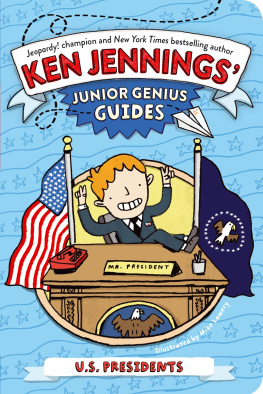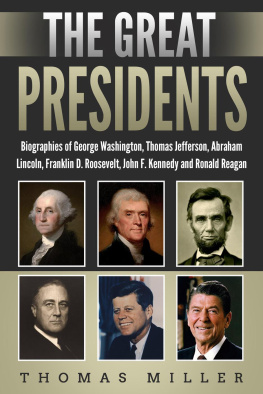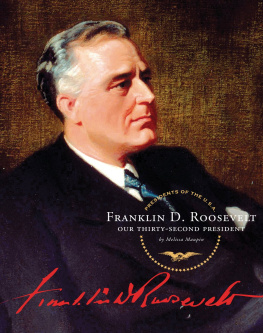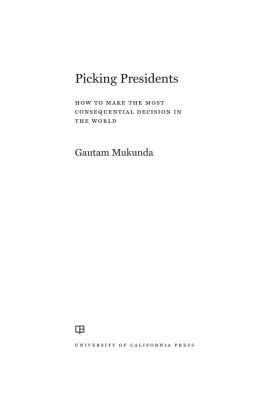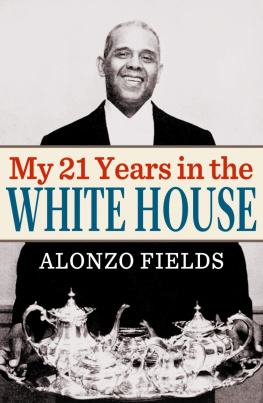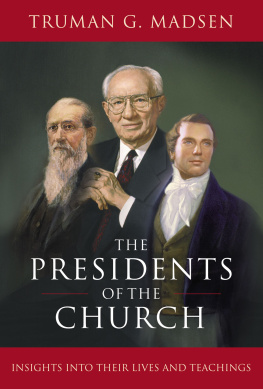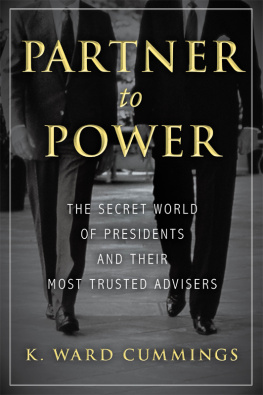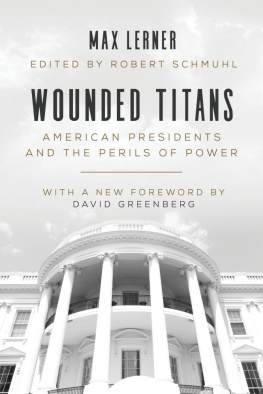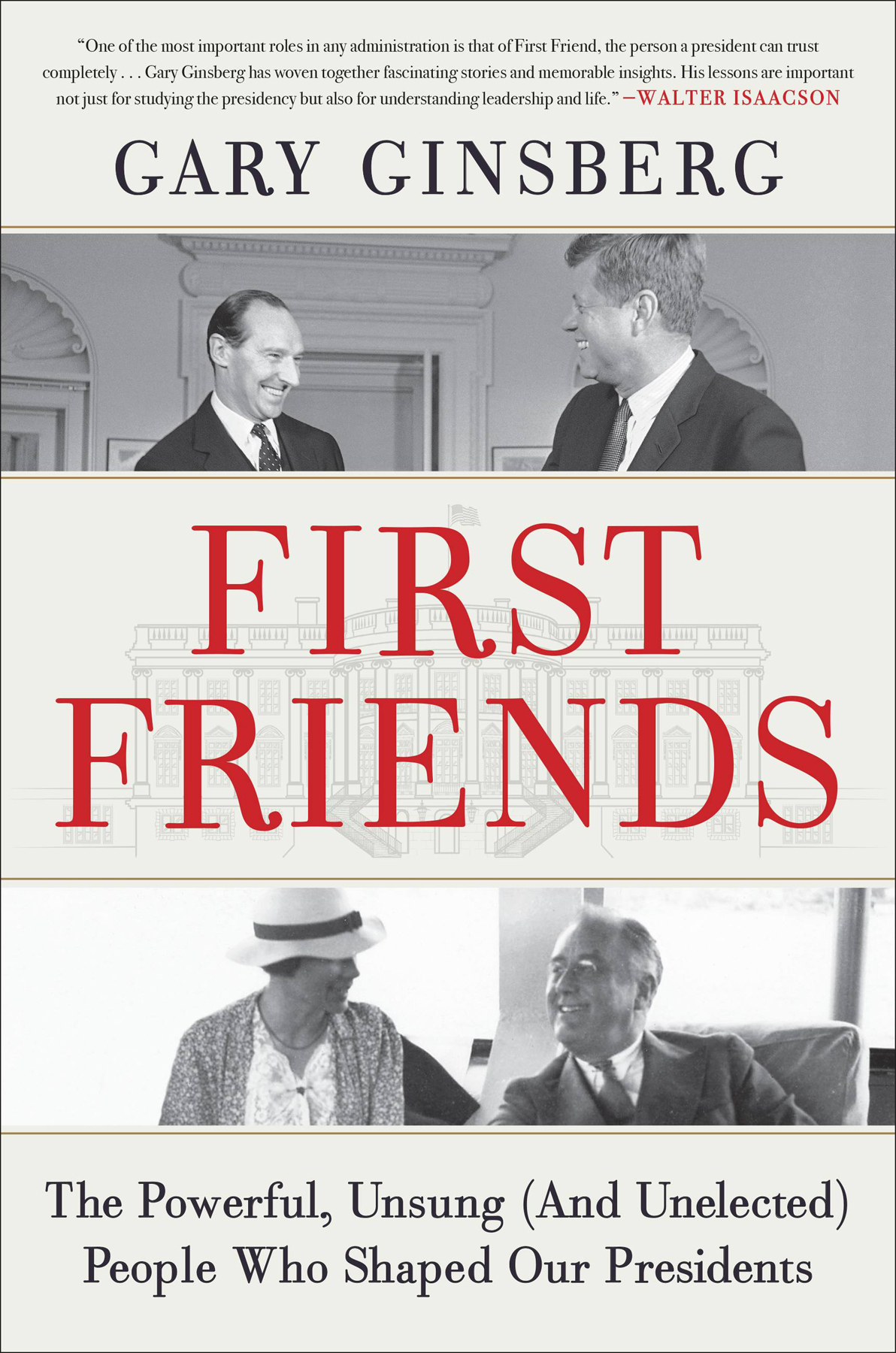Courtesy of the National Portrait Gallery: .
Copyright 2021 by Gary Ginsberg
Jacket design by Jarrod Taylor. Jacket photographs AP Photo/Bob Schutz (top), Wilderstein Historic Site (bottom). Jacket copyright 2021 by Hachette Book Group, Inc.
Hachette Book Group supports the right to free expression and the value of copyright. The purpose of copyright is to encourage writers and artists to produce the creative works that enrich our culture.
The scanning, uploading, and distribution of this book without permission is a theft of the authors intellectual property. If you would like permission to use material from the book (other than for review purposes), please contact permissions@hbgusa.com. Thank you for your support of the authors rights.
Twelve
Hachette Book Group
1290 Avenue of the Americas, New York, NY 10104
twelvebooks.com
twitter.com/twelvebooks
First Edition: July 2021
Twelve is an imprint of Grand Central Publishing. The Twelve name and logo are trademarks of Hachette Book Group, Inc.
The publisher is not responsible for websites (or their content) that are not owned by the publisher.
The Hachette Speakers Bureau provides a wide range of authors for speaking events. To find out more, go to www.hachettespeakersbureau.com or call (866) 376-6591.
Library of Congress Cataloging-in-Publication Data
Names: Ginsberg, Gary, author.
Title: First friends: the powerful, unsung (and unelected) people who shaped our presidents / by Gary Ginsberg.
Description: First Edition. | New York : Twelve, [2021] | Includes bibliographical references and index.
Identifiers: LCCN 2021006851 | ISBN 9781538702925 (Hardcover) | ISBN 9781538702949 (ebook)
Subjects: LCSH: Friendship. | PresidentsUnited StatesHistory. | United StatesPolitics and government. | Male friendship. | Interracial friendship.
Classification: LCC GN486.3 .G56 2021 | DDC 302.34dc23
LC record available at https://lccn.loc.gov/2021006851
ISBNs: 978-1-5387-0292-5 (hardcover), 978-1-5387-0294-9 (ebook)
E3-20210508-JV-NF-ORI
To Susanna, Sam, and Alec
&
To My Parents
I was in the third grade when I saw Abraham Lincoln assassinated. It was during the sixth-grade play at Windermere Elementary School, outside of Buffalo, New York, and I was jarred and transfixed. Until then I didnt know anything about politics let alone Lincoln, but from that moment on I was obsessed with the American presidency: the people who occupied our countrys highest office, their strengths and weaknesses, what made some succeed while others failed, and those who surrounded them.
Thirteen years later I found myself working on Colorado senator Gary Harts 1984 presidential campaign. Hart had just pulled off one of the biggest upsets in Democratic Party history, beating former vice president Walter Mondale in the New Hampshire primary. As the sudden front-runner, Hart needed an advance team. A good friend recruited me, and, as a college senior with nothing better to do, I eagerly accepted.
Over the next four months, I traveled the country as a bit player, organizing events for a maverick young politician seeking to wrest the nomination from a better-known opponent. Hart would ultimately lose, but I saw how a campaign operated and the important role that close friendships can play. Two friends of Harts in particular fascinated me. One, Billy Shore, was his chief of staff and close friend, always at Harts side. He seemed to be Harts alter ego, someone with the right combination of intensity yet inner calm to keep an often pensive candidate switched on. He was so in sync with the candidate that on long plane flights, depending on how Shore read his friends mood, he would know to either keep Hart entertained for hours or remain utterly silent. The other was Warren Beatty, the famous Hollywood actor; their close friendship stretched back a dozen years to when Hart had managed George McGoverns losing 1972 presidential campaign. Beatty would appear dramatically in some of the Hart campaigns most important events and speeches. His movie star glamour always generated a buzz, but he also had the effect of elevating the enigmatic Hart into a lighter and more demonstrative personality. Stop acting and talking like a politician was one of his favorite refrains. Beattys visits were infrequentpart of his mystiquebut his influence on the campaign was palpable, particularly in the marathon conversations he and Hart would have late at night, Beattys preferred time of day. He was the only one in Harts tight circle with greater wattage and status, and he used themas well as the fact he needed nothing from Hartto tell him in blunt terms when something wasnt working, which was often.
In some ways, the subject of this book came about through those two formative insights: one thats universalthe realization that the presidency of the United States is larger than lifeand the other personal and humanthe realization that even someone aspiring to the most powerful office in the world can use a friend just like anyone else.
The more I learned and interacted with politics, the more interested I became in how people act around the enormous power of a presidency and how the presidency is shaped by those people. Inside the proverbial room where it happens, do they act authentically or conformingly? Can they speak difficult truths, or do they genuflect to preserve their place in the room? I also began to wonder about those with influence outside the roomthe unseen hands who, because of their history, independence, wisdom, or intimacy with the leader often helped shape and decide the questions debated in the room. Those who, when the heat gets too high, the tension too palpable, the leader can call on: for a meal, a game of golf, a late-night phone call, a walk in the parka respite so that he can then return to his duties with more clarity and perhaps even new perspective.
Of course this is what friends do, and why would it be any different for people at the highest levels of politics and government? But over the years, as my own involvement in politics and business grew and I gained access to some of those rooms, I began to observe two things more clearly. First, it truly is lonely at the top, and trust, candor, and care for people in positions of great authority and responsibility can be extremely rare. And second, in my own career, much of whatever success Ive had was made possible by the true friendships Ive forged.
My interest in this subject went from a mild curiosity to a revelation in June 1992, when I found myself in an apartment next to the US Supreme Court building interviewing Al Gore, who ten days later would be nominated for the vice presidency of the United States.
This was my fourth stint working for a presidential campaign, and this time I had chosen a winnerArkansas governor Bill Clinton, who was on the verge of becoming the Democratic nominee for president.
I was one of five lawyers assigned by the campaign to vet potential VP candidates. Gore, a second-term senator from Tennessee, was among the candidates on my list. Four years earlier, after graduating law school, I had actually worked on Gores unsuccessful campaign to be the Democratic presidential nominee. I got to know him well and admired his intelligence and commitment to the issues he cared most about. The fact that a former low-level staffer was now his primary vetter must have irked Gore, as I went about prying into every detail of his political and private lives. The task included weeks of public research and private investigative work, including traveling to Nashville to interview every important person in his life, even his wife and parents. I wrote my final memo to the senior campaign team in Little Rock detailing my findings, and waited for word.


